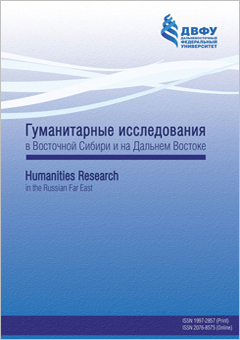From the section editor
DOI:
https://doi.org/10.24866/1997-2857/2023-4/5-6Abstract
The articles featured in this section address key research issues such as the nature of transformations in ethnic self-awareness resulting from migrations and interethnic interactions, the role of ethnocultural memory in preserving authentic elements and constructing new aspects of spiritual culture during the modernization of lifestyles in the Soviet period, as well as the significance of practical experience among migrants from different regions in developing optimal subsistence practices adapted to new natural and climatic conditions. In compiling this section, preference was given to studies that introduce new field materials into scholarly discourse.
Downloads
Downloads
Published
Issue
Section
License
Copyright (c) 2023 Роман Юрьевич Федоров

This work is licensed under a Creative Commons Attribution-NonCommercial-NoDerivatives 4.0 International License.















